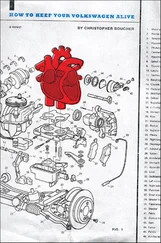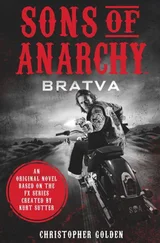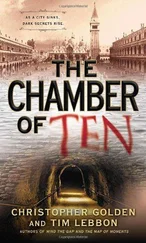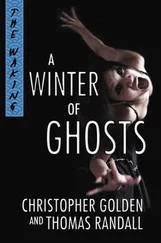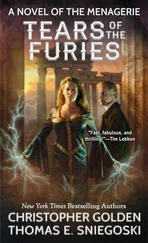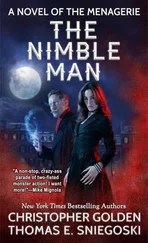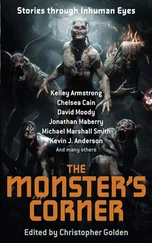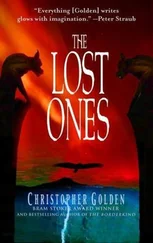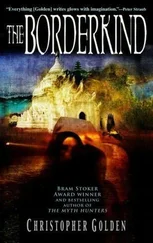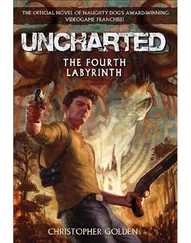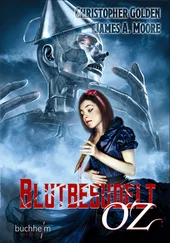He told us himself! And none of these guys in the Syntax Gang — that’s what we called ourselves — were good kids. We were the troublemakers, the kids in the special classes, the ones you’d find in detention cages or Silence School. We were ugly and we knew it. I was fat and bald; Kielbania had two faces; O’Hara didn’t have a face at all.
The Syntax Gang used to hang out in the parking lot of the Pear or behind Cordial Carl’s, but once everyone got dirt bikes we spent all our time in the Dunes.
The Reader flipped through the pages. “Is that what they were called? ‘The Dunes’? I can’t find those pages,” she said.
You won’t — they’re the fancy Appleseed Vista now. Back then, though, those houses hadn’t been built; it was all sand except for a few ideas of houses and concepts of roads. So my friends and I turned the whole thing into a dirt-bike track, with swooping trails and jumps as tall as we were or taller. Usually someone would bring six-foot cigarettes; once, Spond brought Kaddish Fruits. We’d smoke or get high and jump.
Everyone except me, that is. I helped with the jumps and then I watched as my friends rode the tracks. Sometimes Canavan would lend me his Diamondback, but usually I sat at the edge of the Dunes, where the road ended and the sand began, ollying on my skateboard. Odor saw me there one day and said, “You’re never going to get good at jumping bikes unless you practice.”
I shrugged. “No bike,” I said.
“Just ask your Dad for one,” he said.
“It was my fault the last one was stolen.”
“Who cares about that old goatbike?” Odor said. “It was so heavy it couldn’t jump shit anyway.”
I knew we didn’t have much meaning; my Dad could barely pay the mortgage. But one night about a year after the Robinson was stolen, I turned to my Dad while he was watching TV and asked him if there was any way I could get another bike.
He didn’t say anything at first — he just sighed and stared at the TV. By this time in my life, I think he’d started to feel bad for me — to understand that I was unpopular, that I was lonely, that the Reader was my only real friend. My sister had such a bright future — she was so smart, and she had skills. And me? My brain just held shouts. Sometimes my mind puked into my skull. Other times it felt like my skull was caught in a vise or a drill press, and I had to lie down on the cold tile floor of the basement and wait for the feeling to pass. Once, my Dad came downstairs to see if I’d help him with a drainage problem at the buildings and he found me lying on the floor in the dark. “  ?” he said.
?” he said.
“Yeah,” I said.
“What are you doing?” he asked.
“Tell them to stop digging,” I said.
“What?” my Dad said.
“My thoughts,” I said.
A bike meant friends; it also got me out of the house, which would make my mother happy. Sitting there in front of the TV, though, my Dad filled up his belly with air and said, “I really don’t see a way to make that happen,  .”
.”
“All my friends have them, though.”
“Does Bob have one?”
Bobby Lonely was my neighbor. He was poor like us. “No,” I said. “He’s not my friend , though. Odor has one, and the Couplets each have one.”
“Have what?” my Mom said, walking into the TV room.
“A bike,” my Dad said.
“You had a bike,” my Mom said, “but you were lazy and irresponsible. Lazy people lose things like bikes. End of story.”
A few days later, though, my Dad and I went to see a trader he knew named Murphy. Murphy lived in a tiny house out past Appleseed Silence Academy — literally, the house was about the size of a closet — but he had a big amazing barn behind that house where he hoarded away items to trade. The barn was so full you couldn’t even walk in there; one time, Murphy opened the door and a giant spool came crashing down and almost hit me in the head.
When my Dad told Murphy what we were looking for, Murphy cleared his sinuses and crossed his arms. “Sure,” he said. “I got bikes. Least three of them. But they’re meaningful.”
“How meaningful?” my Dad said.
“Cheapest I got?” Murphy peered back at the barn. “Three hundred.”
My Dad winced.
“Is it a dirt bike?” I said.
“A what ?” said Murphy.
“Can you jump with it?” I asked.
Murphy shrugged. “Yeah. I’m sure you can.”
My Dad thanked him and we went home. When I skateboarded over to the Dunes that day, I sat on my board and told Odor what had happened. “There’s no way I’m getting a bike,” I said. “My Dad asked a friend of his and it’s just too expensive.”
Odor leaned over his handlebars. “Freaking steal one then, man,” he said. “It’s easy.”
“I’m not doing that,” I said. “I’d get caught.”
“You won’t,” said Odor. “I can show you how to do it.”
I shook my head, and Odor put his feet on the pedals and rode around me, onto a nearby trail and over a jump, jackknifing his handlebars in midair.
But one day that fall, my Dad and I were sifting through some construction memories at the Appleseed Dump — the memories of windows, the memories of stairs — when a pickup truck pulled into the yard and I noticed a wheel sticking out over the back gate. “Dad,” I said. He looked and saw: the wheel had spokes and a thick rubber tread: it was a bicycle wheel.
We jogged toward the truck. The door opened and a woman stepped out. She was old, with stories all over her face, but she was imposing. Her biceps were huge, and one of them displayed a wrinkled tattoo of a skirtblade: she was a Mother.
“What you got there?” my Dad said.
The Mother didn’t answer. She just reached into the bed and pulled the bike out. I saw the rest of the wheel rise above the gate, and then the shiny handlebars, and then the red frame, and—
“Crap,” said a thought.
— and then another pair of handlebars, and then one seat, and then another. It was a two-person bicycle; a bicycle built for two.
My Dad didn’t seem fazed. “Work OK?” he said.
The Mother nodded and handed the bike over to my Dad. I saw now that it was military grade, a bicycle built for combat back when wars were fought on two wheels. “Just don’t have any more use for it,” the Mother said.
My Dad nodded and started to roll it away.
“Enjoy,” said the Mother. Then she got back into her truck and started it up.
I followed my Dad and tried to catch his eye — to say, with my face, What are you doing? “Doesn’t he realize that bike is for two people?” said one of my thoughts to another.
Just then an old vulture approached; he wore a tweed sweater, stained khaki pants, and a mesh hat. “What you got there?” said the vulture.
“We’re taking it, Claude,” said my Dad, and he hoisted the bike into the bed of the truck.
When I got into the cab, my Dad’s face was bright. “You’ve got to be kidding me,” he half-whispered. “ So great, right?”
“What do you mean?” I said.
My Dad nodded over his shoulder.
“You know I can’t ride that, right?” I said.
My Dad’s face fell. “Why not?”
“Through the Dunes?”
“You said you wanted a bike,” my Dad said.
“A dirt bike.”
“What’s the difference?” my Dad said.
“That bike’s for two people ,” I said.
“That there is an absolutely meaningless bike, military grade, in great condition,” my Dad said. “You can ride that thing for the next five years!”
Читать дальше
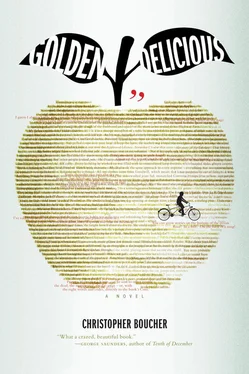
 ?” he said.
?” he said.
